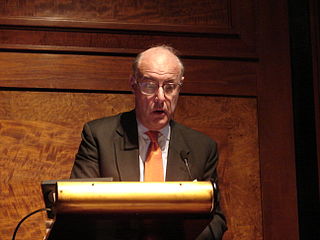A Quote by Sylvia Plath
The moon, also, is merciless: she would drag me
Cruelly, being barren.
Her radiance scathes me. Or perhaps I have caught her.
Related Quotes
I love her for what she has dared to be, for her hardness, her cruelty, her egoism, her perverseness, her demoniac destructiveness. She would crush me to ashes without hesitation. She is a personality created to the limit. I worship her courage to hurt, and I am willing to be sacrificed to it. She will add the sum of me to her. She will be June plus all that I contain.
I could distinguish the shape of her bosom, her arms, her thighs, just as I remember them now, just as now, when the Moon has become that flat, remote circle, I still look for her as soon as the first sliver appears in the sky, and the more it waxes, the more clearly I imagine I can see her, her or something of her, but only her, in a hundred, a thousand different vistas, she who makes the Moon the Moon and, whenever she is full, sets the dogs to howling all night long, and me with them.
There was a warmth of fury in his last phrases. He meant she loved him more than he her. Perhaps he could not love her. Perhaps she had not in herself that which he wanted. It was the deepest motive of her soul, this self-mistrust. It was so deep she dared neither realise nor acknowledge. Perhaps she was deficient. Like an infinitely subtle shame, it kept her always back. If it were so, she would do without him. She would never let herself want him. She would merely see.
But she did not take her eyes from the wheels of the second car. And exactly at the moment when the midpoint between the wheels drew level with her, she threw away the red bag, and drawing her head back into her shoulders, fell on her hands under the car, and with a light movement, as though she would rise immediately, dropped on her knees. And at the instant she was terror-stricken at what she was doing. 'Where am I? What am I doing? What for?' She tried to get up, to throw herself back; but something huge and merciless struck her on the head and dragged her down on her back.
Sometimes a woman's love of being loved gets the better of her conscience, and though she is agonized at the thought of treating a man cruelly, she encourages him to love her while she doesn't love him at all. Then, when she sees him suffering, her remorse sets in, and she does what she can to repair the wrong.
I think I fell in love with her, a little bit. Isn't that dumb? But it was like I knew her. Like she was my oldest, dearest friend. The kind of person you can tell anything to, no matter how bad, and they'll still love you, because they know you. I wanted to go with her. I wanted her to notice me. And then she stopped walking. Under the moon, she stopped. And looked at us. She looked at me. Maybe she was trying to tell me something; I don't know. She probably didn't even know I was there. But I'll always love her. All my life.
For all her active goodness, Florence Nightingale herself was far from being the angelic figure of popular adulation: according to Lytton Strachey's Eminent Victorians she was a self-righteous, domineering amazon, who was ruthless in her compassion, merciless in her philantropy, destructive in friendships, obsessional in her list for power, and demonic in her saintliness.
Perhaps I will die too, she told herself, and the thought did not seem so terrible to her. If she flung herself from the window, she could put an end to her suffering, and in the years to come the singers would write songs of her grief. Her body would lie on the stones below, broken and innocent, shaming all those who had betrayed her. Sansa went so far as to cross the bedchamber and throw open the shutters ... but then her courage left her, and she ran back to her bed, sobbing.
Let me explain it to you then. I just had a beautiful girl trust me enough to touch her and see her in a way no one else ever has. I got to hold her and watch her and feel her as she came apart in my arms. It was like nothing else I'd ever experienced. She was breathtaking and she was responding to me. She wanted me. I was the one making her spiral out of control.





































